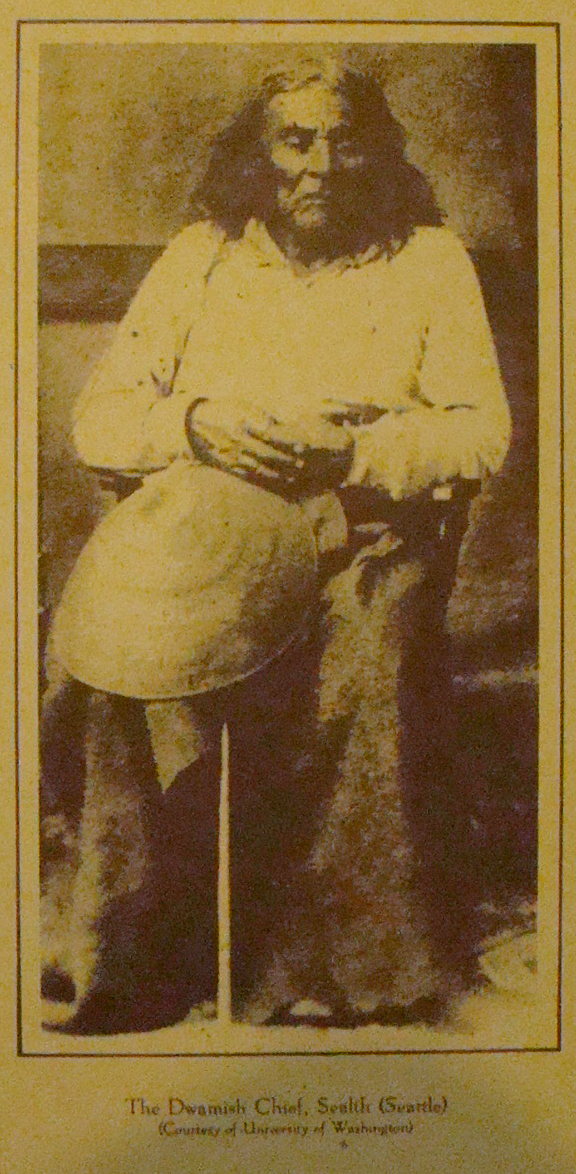
Provided by James R. Martin, Ph.D., CMA
Professor Emeritus, University of South Florida
Environmental Cost Main | Political
Issues Main |
Social Accounting Main
In 1854, the United States Government offered to buy two million acres of Indian land in the Northwest. The following is a translation of the Dwamish Chief Sealth's (Seattle's) reply to President Franklin Pierce. Although the Chief's response has been published several times (See note), I copied it from a display on the wall at Mountain Lake Lodge near Blacksburg Virginia.
The Great Chief in Washington sends word that he
wishes to buy our land. The Great Chief also sends us words of friendship and
good will. This is kind of him, since we know he has little need of our
friendship in return. But we will consider your offer.
How can you buy or sell the sky, the warmth of the land? The
idea is strange to us. If we do not own the freshness of the air and the
sparkle of the water, how can you buy them?
Every part of this earth is sacred to my people. Every
shining pine needle, every sandy shore, every mist in the dark woods, every
clearing, and every humming insect is holy in the memory and experience of my
people. The sap which courses through the trees carries the memories of the
red man. So, when the Great Chief in Washington sends word that the wishes to
buy our land, he asks much of us...
This we know: All things are connected. Whatever befalls the
earth befalls the sons of the earth. Man did not weave the web of life; he is
merely a strand in it. Whatever he does to the web, he does to himself. But we
will consider your offer to go to the reservation you have for my people. We
will live apart, and in peace.
One thing we know, which the white man may one day discover
- our God is the same God. You may think now that you own him as you wish to
own the land: but you cannot.
He is the God of man; and his compassion is equal for the
red man and the white. This earth is precious to Him and to harm the earth is
to heap contempt on its Creator. The whites too shall pass; perhaps sooner
than all other tribes. Continue to contaminate your bed, and you will one
night suffocate in your own waste.
But in your perishing you will shine brightly, fired by the
strength of the God who brought you to this land and for some special purpose
gave you dominion over this land and over the red man. That destiny is a
mystery to us, for we do not understand when the buffalo are all slaughtered,
the wild horses are tamed and the view of the ripe hills blotted by talking
wires. Where is the thicket? Gone. Where is the eagle? Gone. And what is it to
say goodbye to the swift pony and the hunt? The end of living and the
beginning of survival. So we will consider your offer to buy the land.
If we agree, it will be to secure the reservation you have
promised. There, perhaps, we may live out our brief days as we wish. When the
last red man has vanished from the earth, and his memory is only the shadow of
a cloud moving across the prairie, these shores and forests will still hold
the spirits of my people. For they love this earth as a newborne loves its
mother's heartbeat. So if we sell our land, love it as we've loved it. Hold in
your mind the memory of the land as it is when you take it. And preserve it for
your children, and love it...as God loves us all. One thing we know. Our God is
the same God. This earth is precious to Him. Even the white man cannot be
exempt from the common destiny. We may be brothers after all.
We shall see..."

___________________________________
For more information on Chief Sealth, or Chief Seattle, see Wikipedia's related pages. Translations of the Chief's speeches and this letter are controversial. See The Online Encyclopedia of Washington State History for the controversy.
Oser, J. 1963. The Evolution of Economic Thought. Harcourt, Brace & World, Inc. See the ideas of Thomas Paine and Henry George related to owning land in Chapter 16.